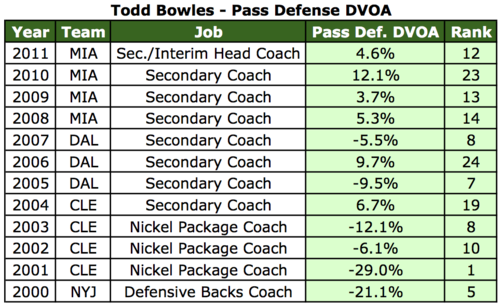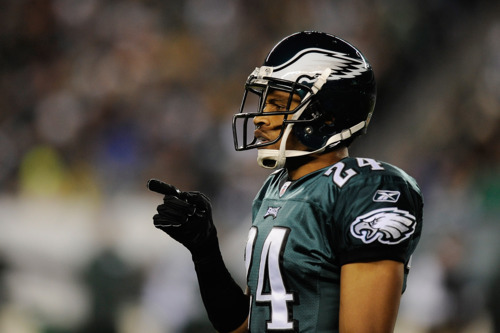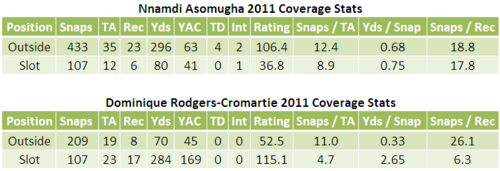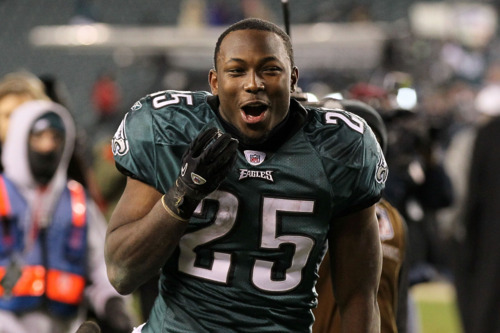On Wednesday, I took a look at Brandon Boykin's production. For a rookie slot corner, he did rather well. I wish I could say the same about the rest of the Eagles cornerbacks. Overall, it was a rather disappointing bunch.
As everyone surely remembers, last offseason the Eagles traded away Asante Samuel for a seventh-round draft pick. It was a stunningly low value return for a player who is currently fourth in career interceptions among all active players. Still, there was optimism. Trading Samuel allowed Dominique Rodgers-Cromartie to play his natural position outside rather than in the slot. Nnamdi Asomugha, it was thought, would benefit from Todd Bowles' better schemes.
It didn't quite work out that way. Check out the numbers below, with ranks based on the 118 NFL cornerbacks who have played at least 25% of their defense's coverage snaps:
I used the same metrics to evaluate Boykin's slot performance. First you have target percentage, which measures how often quarterbacks looked your way. All three starters did better than average in this marker, Asomugha especially. The former Oakland Raider has always deterred passes in his direction, and this year was no exception, ranking fourth among those 118 cornerbacks. As we will get to in a moment, Asomugha's stats weren't as good when quarterbacks actually threw the ball at him. That makes for a curious question. Is he still benefitting from reputation? Or does his press-coverage style just discourage lots of short, quick passes to his receiver?
The second metric is completion percentage. Both Rodgers-Cromartie and Boykin were quite solid. Although he was flagged for a number of poor pass interference calls, DRC's last-second make-up speed allows him to get his hands on the ball at the last second and break up catches. Asomugha, on the flipside, didn't look so good. Quarterbacks completed nearly 65% of passes toward his man.
Finally we have yards per catch. Everybody here did poorly, with Asomugha at the very bottom. If you want, you can give some benefit of the doubt here. The Eagles had poor safety play all year. Where the corners should have had help over the top or a timely tackle, often turned into a major error that allowed significant yards after the catch. Still, it's not a positive marker.
Note that I haven't mention the other two cornerbacks I listed, Curtis Marsh and Brandon Hughes. Neither has good numbers, although they only had 78 coverage snaps combined, so it's hard to draw any conclusions.
Overall, I think you have to lean toward letting Asomugha go. He's clearly a liability in coverage, and that will only worsen as he slows down and teams realize how bad he has become. Boykin certainly looks like a keeper with upside. And DRC has potential but not always the best results. I've advocated re-signing him in the past, and I still think that would be a good idea. Hopefully the next coach can get more out of him. The final takeaway is that the team needs better safeties. Mistakes are really magnified when you can't count on a last-resort option to clean up the mess.
Photo from Getty.


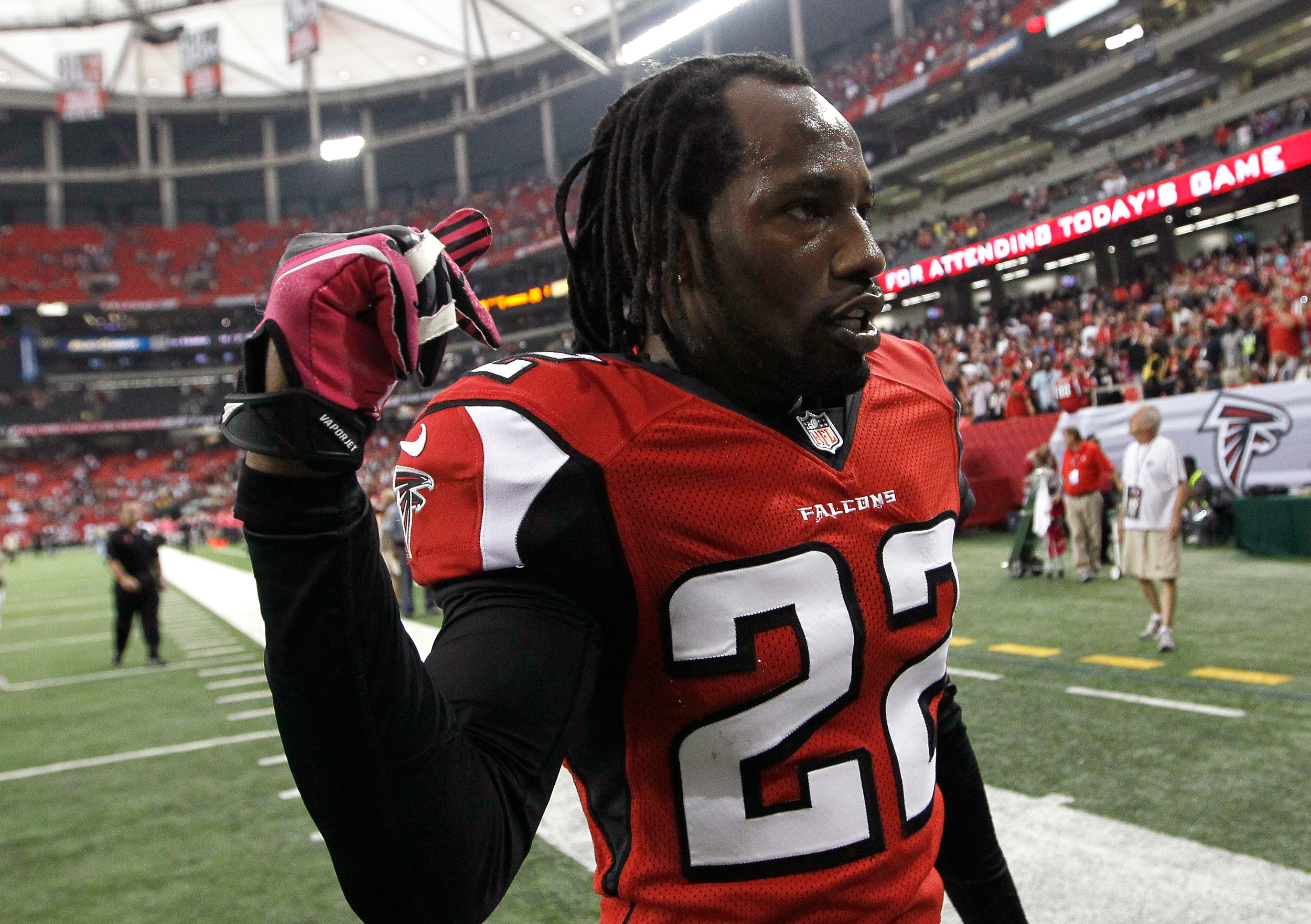

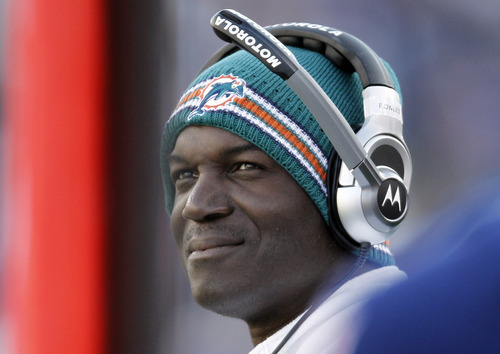
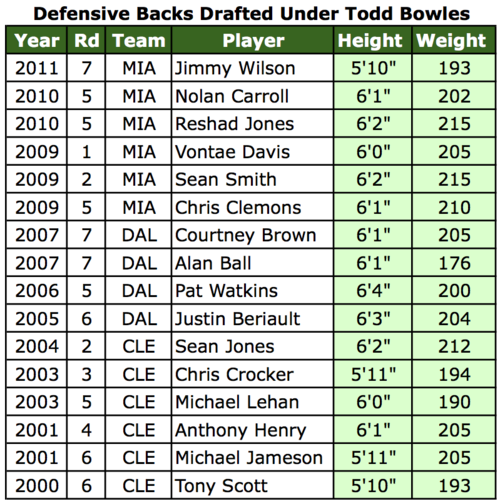 As you can see at right, teams where Bowles has been the secondary coach consistently draft tall defensive backs (
As you can see at right, teams where Bowles has been the secondary coach consistently draft tall defensive backs (